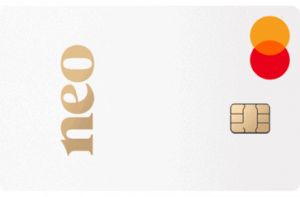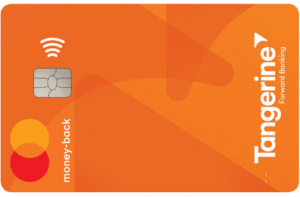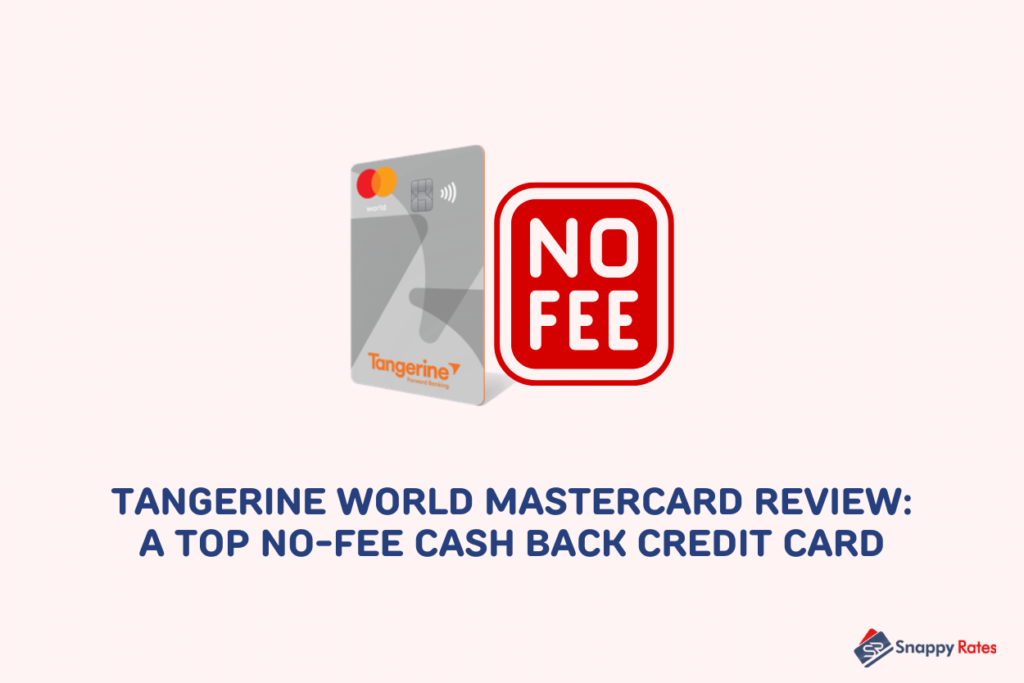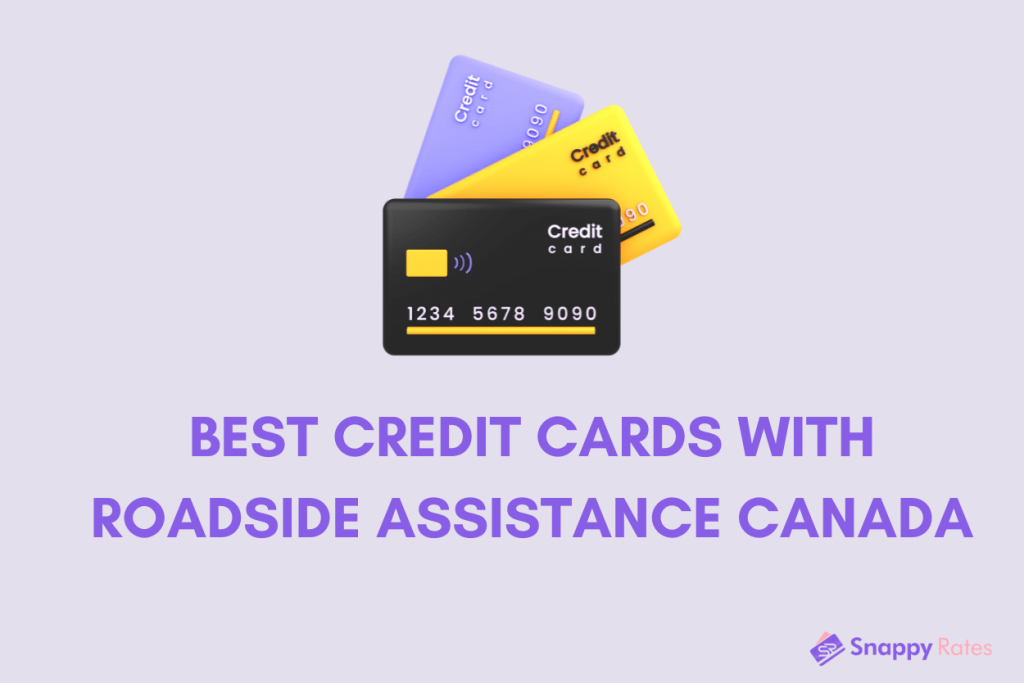If you have a credit card or are thinking about getting one in the future, it’s a good idea to understand how credit card interest works.
There’s a lot to learn, but we’ll give you all the information you need to make informed decisions about credit cards to help you keep interest payments low.
What is Credit Card Interest?
Credit card companies lend consumers money to make purchases. If you don’t pay the borrowed amount back each month, the credit card company charges you a percentage of the amount due, which is called interest. This means you’re paying the company to lend you money.
How Does Credit Card Interest Work?
All credit card companies charge interest as an annual percentage rate (APR). Most credit card companies in Canada use a fixed rate APR, but some companies charge a variable rate APR.
Here’s a look at what these terms mean for you.
APR
The APR is the yearly interest rate you’ll be charged on your credit card balance. It’s broken down into a monthly calculation, depending on your balance each month.
Most cards have different APRs for purchases, cash advances, and balance transfers.
The APR can be used to calculate charges over any time period—usually daily or monthly—based on the annual rate. We’ve got a detailed example in the next section to help explain.
Some credit card companies offer the same APR to all customers who are approved for a card.
Others base the APR on individual factors like your credit score and your debt-to-income ratio. If you don’t make your minimum monthly payments, your interest rates could increase.
| Fixed Rate APR | Variable Rate APR |
| Does not change over time | May change over time |
| Set by the credit card issuer when you first get your card | Based on the Prime rate set by the Bank of Canada |
Balance Transfers
Sometimes, you can pay off one credit card by transferring the balance to another card that has a lower APR.
You’ll be charged a fee on the transfer, which is usually calculated as a percentage of the amount you’re transferring.
The interest rate charged for balance transfers is usually higher than the rate that’s charged for purchases.
Cash Advances
Most credit cards have the option to take out a cash advance. This is a cash loan you get from the credit card company, so you’ll have to pay fees and interest for it.
These fees could be a fixed amount, a percentage of the amount you borrowed, or a combination of both.
Interest rates for cash advances are usually higher than those for purchases or balance transfers.
When is Credit Card Interest Charged?
Credit card interest is charged daily, which means that it adds up quickly. To help you figure out the daily interest you’re paying on your balance, we’ve written a step-by-step example:
- Divide your card’s APR by 365 (days in the year).
- Multiply this number by your credit card balance.
- Repeat step two daily and add it to your total balance.
Here’s a more specific example, assuming your card has an APR of 22%, and your balance is $2,000.
- Divide 22% by 365. This equals a daily periodic rate (DPR) of .0602%.
- Multiply your DPR of .0602% by your balance of $2,000. This equals about $1.20, which will be added to your balance on the first day. Your balance is now $2,001.20.
- On day two, your starting balance is $2,001.20. Now, multiply this by your DPR and you’ll get another $1.20, which you’ll add to your balance. This brings your total balance to $2,002.40.
- On day three, multiply your balance of $2,002.40 by your DPR to get $1.21, which now brings your balance up to $2,003.61.
- Continue this process until your balance is paid in full.
As your balance increases because of accrued interest, the daily amount of interest you pay will also grow. This is known as compounding, and it’s the reason your credit card balance goes up so quickly.
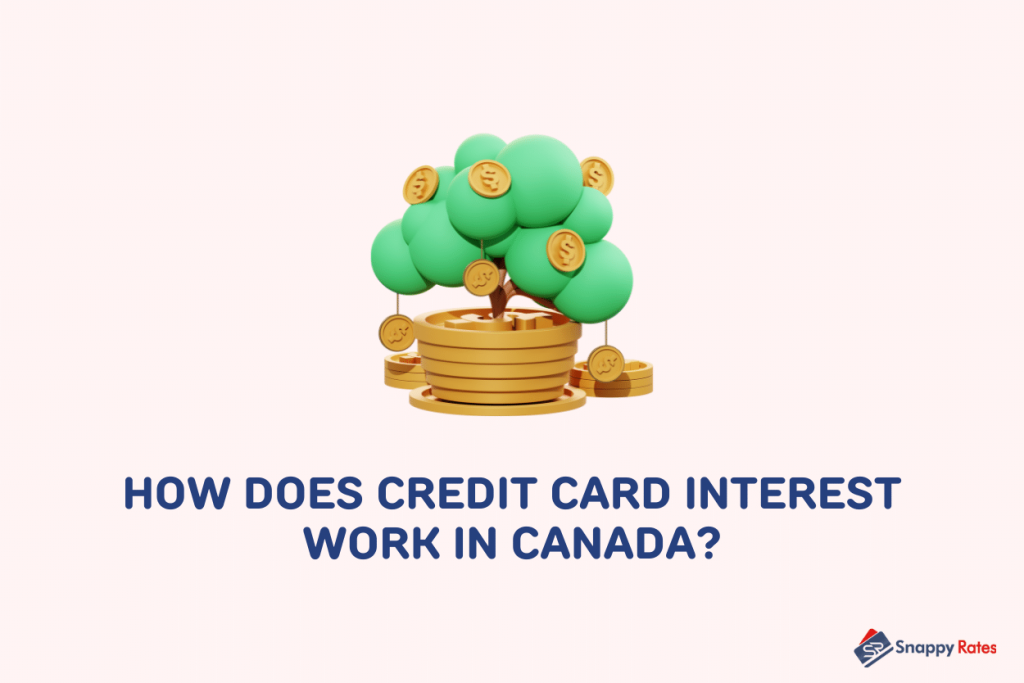
How to Avoid Paying Credit Card Interest on Purchases
Some credit card companies offer 0% APR introductory offers. This means they don’t charge interest for a fixed period of time, usually several months.
If you take advantage of one of these offers, you can avoid paying interest at first. After the offer expires, though, you’ll be charged interest on any balance you haven’t paid.
The only long-term way to avoid paying interest on your credit card purchases is to pay your balance off in full each month.
In Canada, the due date is a minimum of 21 days after the billing cycle ends. This is known as a grace period. Some credit card companies offer longer grace periods than others.
To find out how long your credit card company’s grace period is, check the terms and conditions in your contract.
Any balance that’s left after your credit card’s grace period ends will accrue interest immediately.
Final Thoughts
Understanding how credit card interest works is important to help you choose the right card and avoid paying a ton of fees.
Were you surprised to learn that your balance accumulates interest every day? It really does add up fast.
The most surefire way to avoid being charged interest is to pay your balance in full every month.
FAQ
Is credit card interest monthly or yearly?
The amount you pay in credit card interest is based on a yearly rate (APR), but the interest amount is calculated and charged daily. Credit card statement periods are usually about a month long, and balances that aren’t paid off by the end of the month are charged a daily interest amount based on the APR.
What happens if I max out my credit card but pay in full?
As long as you pay off your balance each month, maxing out your card won’t result in interest payments or late fees. If you accidentally go over your credit card limit, however, you’ll probably be charged an over-the-limit fee.
Do you pay interest on a credit card if you pay the minimum?
Yes. Interest will accrue on any credit cards where you hold a balance past its due date. By paying the minimum, you’re still going to accrue interest on your outstanding total minus your minimum payment.
Do I get charged interest if I pay in full?
No. Interest is only charged if there’s an unpaid balance on your credit card when your billing cycle ends. If there’s no unpaid balance, there’s nothing to charge interest on.
What is the average credit card interest rate?
In 2021, the average credit card APR in Canada was about 19%. That same year, credit card APRs ranged from 8.99% to 29.99%.

